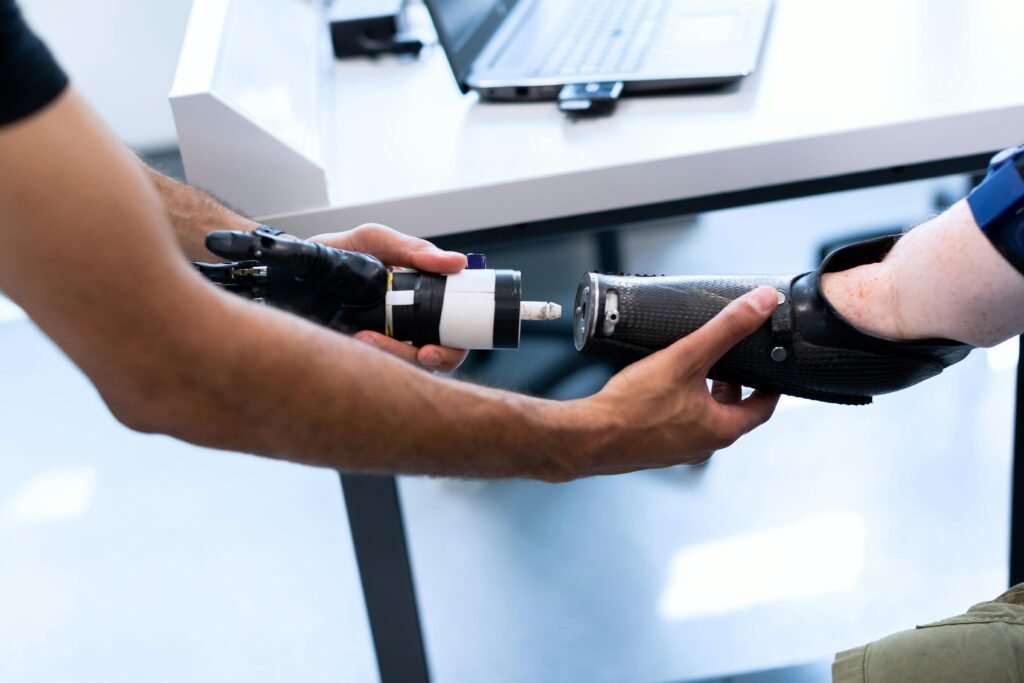An NHS hospital in the United Kingdom has made global headlines by becoming the first hospital in the world to utilize artificial intelligence in performing rapid self-autonomous diagnosis of skin cancer. This advancement in technology is poised to transform how one of the most common forms of cancer in the world – skin cancer – is diagnosed and treated by making it more accurate, faster, and less time-consuming from a patient’s perspective.
The Struggles of Cancer
Among the various types of cancer, skin cancer and melanoma, in particular, is one of the fastest-growing cancers throughout the world. The number of people diagnosed with skin cancer in the United Kingdom alone has been on a steady increase and this highlights the importance of early detection to save lives. Currently, confirming a diagnosis for skin cancer relies heavily on a visual assessment from a dermatologist and lab tests. This method tends to be arduous and often leaves the patients stuck in the waiting game for an extensive period of time.
Though dermatologists possess immense skill and talent, the increasing workload is putting tremendous strain on the already overburdened health care systems which leads to long queues and waiting periods and active treatment getting postponed. Avoiding treatment during this period can cause a lot of harm because receiving aid soon enough maximizes the chances of successful outcomes.
The Impact of Artificial Intelligence – A New Approach
To respond to this issue, the NHS hospital in Chelsea and Westminster has adopted an advanced AI tool that is set to transform the diagnostic method. This AI system is able to analyse images of skin lesions and is designed to identify moles or skin lesions that may be cancerous at a feasible rate. The procedure is both straightforward and efficient; patients get to take photos of any concerning moles with an iphone attached with a microscope lens which is done within seconds.
Using deep learning algorithms based on thousands of images of skin lesions, the AI is able to identify skin lesions which are not visible to the naked eye. The technology will then determine if the mole in question is of a benign nature or rather a potentially malignant one. This advanced AI does not stop at simply providing options which are often not acted upon, for people whose lesions seem suspicious, they are guided to proceed for further examination by a specialist.
The Benefits Of Rapid Diagnosis
The primary advantage of this technology is its speed. The app provides results in a matter of minutes, enabling patients to determine if their mole is benign or malignant. Rapid diagnosis means that people who might otherwise spend weeks in limbo waiting for answers regarding their health will be able to receive quick and timely responses about their health status.
The system is highly reliable; its 99.9% accuracy rate in ruling out melanoma is astonishing. With such a high level of precision, the majority of cases are correctly excluded by the AI, meaning that only the more severe cases that need immediate attention are left for the specialists to focus their time and skill on.
Decreasing Burden on the Healthcare System
A healthcare system like the NHS that has dealt with backlogs and large waiting lists for years may be aided by the implementation of this AI technology. Unnecessary referrals can be eliminated, which further improves the doctors and healthcare practitioners attending to patients who actually need attention needing specialized care. Consequently, dermatology patients no longer experience extensive waiting periods, allowing patients and healthcare providers to obtain treatment in a quicker manner.
Improving the Experience of Patients
The AI tool is also less invasive and more timely when compared to other methods. Traditionally, skin cancer diagnosis requires a trip to the dermatologist, several tests, and long bouts of waiting. With AI, patients can understand their condition immediately and allow them to make decisions regarding the next step while reducing anxiety.
Individuals residing in rural parts of the country or those who have little access to medical facilities can also take advantage of the AA powered system right from the artificial intelligence driven mobile phones.
The Use of AI in Healthcare: What Comes Next
Initially deployed in a single NHS hospital, the AI tool is set to expand across the rest of the UK and internationally. This is a remarkable advancement in the proactive use of artificial intelligence in healthcare. Its application to other cancer diagnostics and general medicine is astounding.
Artificial Intelligence is set to advance further, and with that, it’ll be easier to integrate it into healthcare systems all over the world. Patients will benefit from improved outcomes, more accurate diagnoses, and less burden on the already overwhelmed healthcare providers.
The Wrap-up
The use of Artificial Intelligence for skin cancer diagnosis at the UK NHS hospital is a clear case of how technology integration is changing the healthcare space. The enhanced innovation of this AI approach promises fast and accurate diagnoses for patients while leveraging the future of medical innovation and how artificial intelligence can save lives. With further development and scaling of this technology, there’s potential for improved prospects of earlier detection, rapid treatment, and higher survival rates of skin cancer patients.


